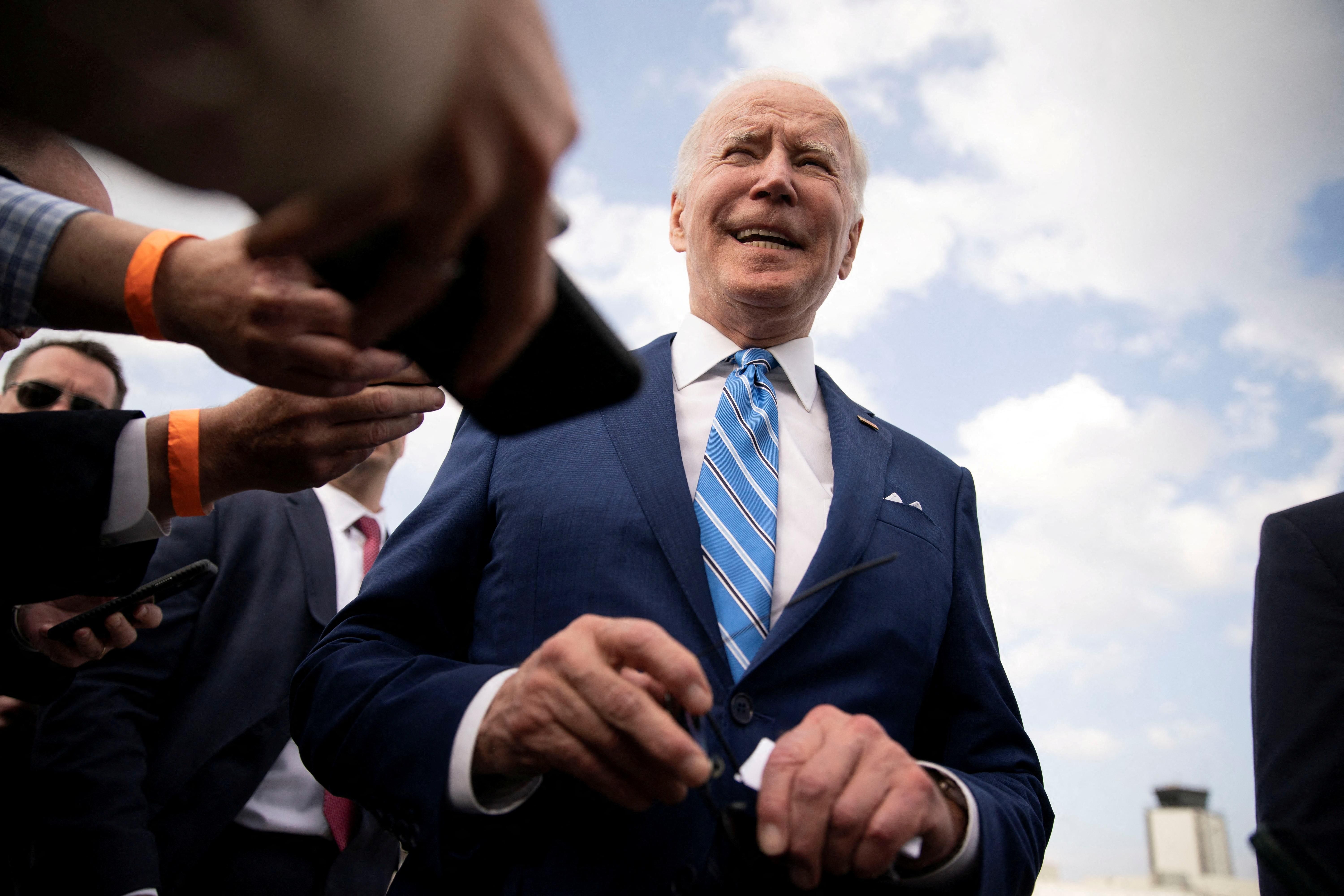What We're Watching: Biden dubs Ukraine a "genocide," Russia fakes BBC clip, US border politics, Ivory Coast shake-up
Biden hits a nerve with the term ‘genocide’
It’s not a word to throw around lightly. On Wednesday, President Joe Biden described Russian atrocities in Ukraine as “genocide” because, he said, “it has become clearer and clearer that Putin is just trying to wipe out the idea of being able to be Ukrainian and the evidence is mounting.” Canadian PM Justin Trudeau deemed that use of the term “absolutely right,” but Moscow was quick to take exception, and even Biden acknowledges that international lawyers will need to determine whether Moscow’s maneuvers meet the legal definition of genocide. But what are the experts and activists saying? They’re undecided — and for good reason. Even the UN states such determinations can only be done by a “competent international or national court of law” with jurisdiction. While Biden’s remark reflects his growing disgust with Putin’s actions, it is not expected to change US policy anytime soon.
Russia’s ‘BBC clip’ denounced as fake news
A provocative video appeared on Wednesday on Kremlin social media accounts that can now be found on Facebook, Twitter, and YouTube. It also featured on Russian state television. The clip suggests that an April 8 rocket attack on a railway station that killed 50 Ukrainian civilians trying to flee the eastern Ukrainian city of Kramatorsk was deliberately carried out by Ukraine’s military to poison foreign attitudes toward Russia. Importantly, the video claims to come from the BBC, and the British broadcaster has denounced it as a hoax. To explore the obvious signs it’s a fake, click here. Why would the Russian government promote a video it not only knows is fake, but can be quickly proven as fake by the BBC? The answer appears to be that while the Kremlin cares very much about public opinion inside Russia, where some will accept the news as real, it understands that the battle for public opinion in Europe and America is already lost. And maybe Moscow is trolling the BBC. A larger point: Given how easy it is now to produce fake video and put it in front of millions of people, we can expect to see more of this fakery. And not just in Russia.
Border politics … and economics
The US-Mexico border is back at the center of US election-year politics. The Biden administration says it wants to lift Title 42, a public health order issued by former President Donald Trump that sharply slowed the cross-border flow of migrants to help contain the spread of COVID. But four Senate Democrats, all of them facing tough re-election fights this November, have joined Republicans to support a bill that would keep Title 42 in place until 60 days after the surgeon general says COVID-19 is no longer a public health emergency. There’s also an economic dimension to border politics that’s now dividing Republicans. Last week, Texas Gov. Greg Abbott, a Republican who faces his re-election battle this fall, ordered state police to inspect trucks entering Texas from Mexico. In protest, Mexican truckers have launched a blockade that has slowed commerce further. The state’s agriculture commissioner, also a Republican, called Abbott’s decision “catastrophic” for the state’s economy. The resulting border delays, says Miller, are “increasing the cost of food and adding to supply chain shortages” as large numbers of unrefrigerated trucks carrying food wait in line for inspectors in high Texas temperatures.
